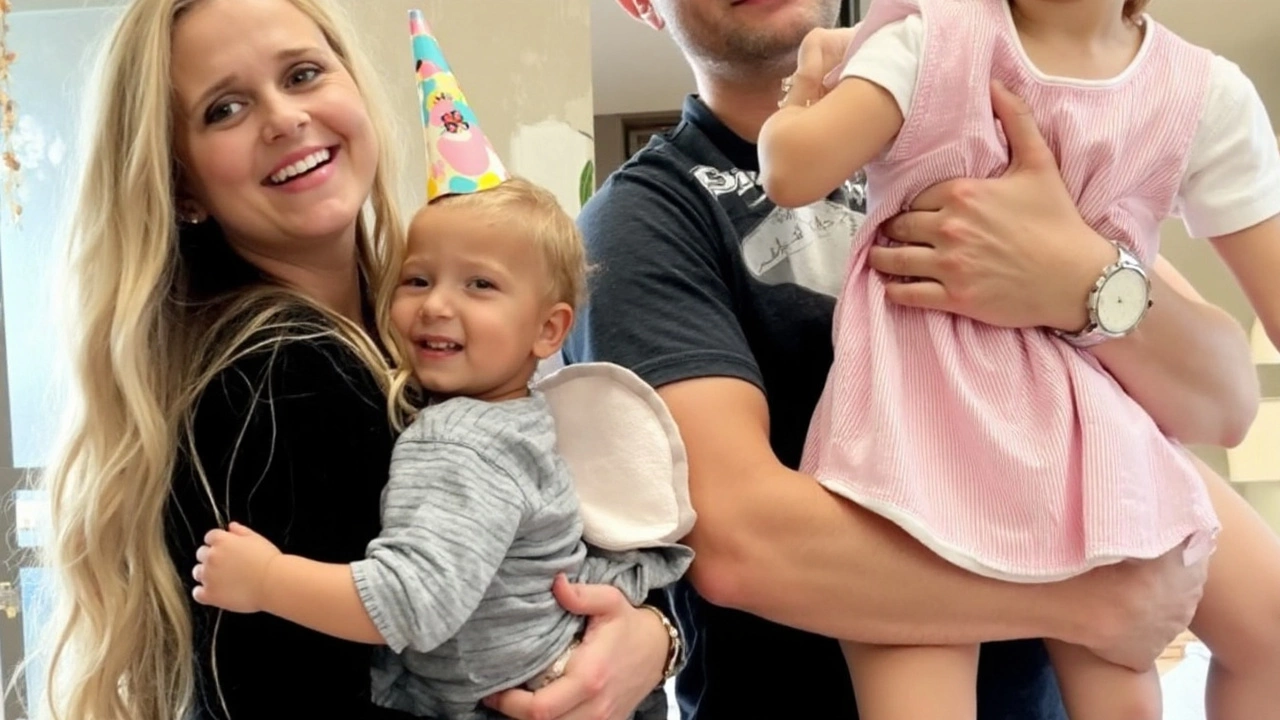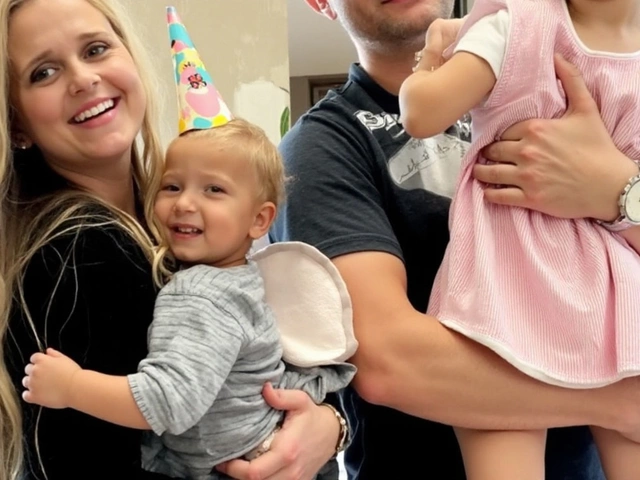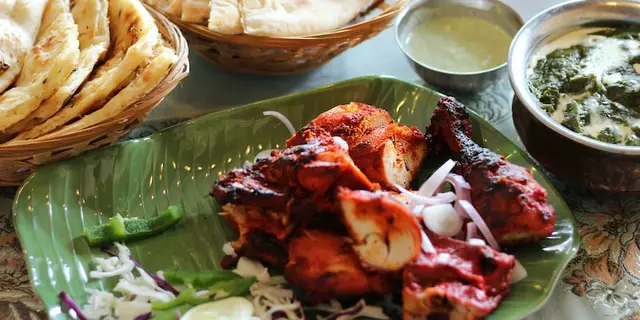A private family built on faith
Reports circulating online say Charlie Kirk, the conservative activist and founder of Turning Point USA, was shot during a speaking event at Utah Valley University on September 10, 2025. Early accounts described a fast-moving situation and a heavy law enforcement response on campus. As with any breaking incident, some details remained fluid, and officials had not released a full, public timeline.
Behind the headlines and the rallies was a deliberately private home life. Kirk, one of the most visible faces in youth conservative politics since launching Turning Point USA in 2012, often spent weeks on the road for campus events and conferences. He also hosted a daily talk show and podcast. Yet he and his wife, Erika Frantzve (now Erika Frantzve Kirk), worked to keep their two young children away from the public eye while sharing small, curated glimpses of family routines, faith, and travel.
Erika’s background is its own full story. A former Miss Arizona USA, she built a resume that blended pageants, entrepreneurship, and ministry work. She founded two nonprofits focused on faith-driven outreach and operates a clothing line called Proclaim, known for faith-based designs and messages. She also hosts a podcast centered on Christian living and service. At the same time, she has pursued advanced theological training, working toward a doctorate in Biblical Studies through Liberty University. Friends and colleagues describe her as driven and disciplined, but also protective of the couple’s private world.
Their relationship began in 2018. Kirk has said he sensed early that Erika might be his future wife, joking that their first long dinner “was very close to almost an interview.” That wasn’t a throwaway line. On his show and at live events, he argued that people should approach dating with intention—what he called “interviewing for your spouse”—to make sure values align before marriage. He talked about rhythms that matter: faith habits, views on career and calling, and how a couple handles conflict and pressure.
By December 2020, he proposed. Six months later, on May 8, 2021, they married. The ceremony was small by design—intimate, with no bridesmaids or groomsmen—limited to close friends and family. There were no grand celebrity-style reveals, no media orchestration. The tone matched what the couple would try to maintain in the years ahead: public about their faith and mission, measured about their private life.
They welcomed a daughter in August 2022 and a son in May 2024. On social media, the pair shared family moments—holiday photos, church gatherings, bike rides, road trips—but kept the kids’ faces and names off-camera. The choice was consistent and intentional. Public figures regularly face coordinated online harassment; the couple’s decision looked less like a media strategy and more like basic risk management for children who never asked for a spotlight.
In April 2025, Erika joined an episode of The Charlie Kirk Show to pull back the curtain a bit. She spoke about how they divided responsibilities, how they tried to keep their home calm when public life grew loud, and how their faith informed decisions big and small. She framed marriage as a team sport: shared purpose, mutual confidence, and quick forgiveness. It echoed her public posts praising her husband as “a force,” someone “bold when the world demands silence” and “fearless where others flinch.”
Hours before the Utah event, Erika shared a verse on social media: “Psalm 46:1 — God is our refuge and strength, a very present help in trouble.” It read like a simple devotional moment at the time. After the incident, that line took on heavier weight for supporters who saw it reposted across timelines and group chats.
Much of the couple’s public life functioned like this: specific details, then deliberate silence. Photos of date nights, but not the restaurant name. Parenting reflections, but not school locations. This pattern had a practical side, given how polarizing politics can become. It also fit their stated belief that family should remain a sanctuary, especially for young children who can’t consent to a permanent digital record.
Turning Point USA, the organization Kirk founded, sits at the center of many campus debates. Its model is straightforward: student chapters, speaker tours, and conferences aiming to energize young conservatives and push back on what the group sees as ideological conformity in higher education. That mission made Kirk a frequent guest at colleges across the country and a lightning rod for protests. He kept an aggressive schedule, moving from campus auditoriums to hotel ballrooms, then back to the studio to record or stream commentary for his audience.
Friends say Erika adapted to that schedule with her own sense of mission—running her ventures, pursuing her doctorate, and leaning on extended family and close friends. The couple leaned on routines: prayer, workout blocks, clear work windows, and hard stop times for family dinner. For supporters, their public posts were a case study in juggling high-intensity public work with home life without turning the family into a content engine.
Here’s a simple timeline of their relationship and family milestones as they shared them:
- 2018: The couple meets. Early on, Charlie describes their first long dinner as “almost an interview.”
- December 2020: Engagement.
- May 8, 2021: Intimate wedding with close friends and family.
- August 2022: Birth of their daughter.
- May 2024: Birth of their son.
- April 2025: Erika appears on The Charlie Kirk Show to discuss marriage and faith.
- September 10, 2025: Reports of a shooting at Utah Valley University during a Kirk speaking event.

What we know about the Utah campus incident
Initial accounts from the scene described a shooting during a scheduled event at Utah Valley University in Orem. Witnesses posted about lockdowns and a rapid police response, but public, official briefings were limited in the first hours. As often happens with breaking incidents, details were inconsistent across social platforms and secondhand updates.
Some reports said members of the Kirk family were present on campus that day. Without formal statements from authorities, it remained unclear how the event unfolded minute by minute or what the motive may have been. Investigators typically take time to establish a full chronology, process evidence, and notify family before issuing a comprehensive statement. Early information, even when well-intentioned, can be incomplete or wrong.
Online, messages of sympathy poured in from supporters and critics alike who set aside politics to offer prayers for the family. Allies in Republican politics amplified those sentiments, and posts widely shared by users referenced condolences from former President Donald Trump. As with any social media reaction cycle, not every claim could be immediately verified, and officials had yet to publish a detailed summary of what occurred.
In the wake of high-profile campus incidents, the pattern is familiar: a swirl of posts, short clips, and screenshots, followed by a slower, methodical process by law enforcement and event organizers. Utah Valley University generally coordinates with local police in such cases, securing buildings and issuing campus alerts while investigators manage the scene. That protocol limits the information available in the first hours but helps preserve evidence and reduce confusion.
The focus for those close to the family has been pastoral and practical: protecting the children, managing necessary communications, and leaning on their faith community. People who followed the couple online recognized the same steady themes—scripture, gratitude for close friends, and careful boundaries around what gets shared.
Whatever one’s politics, the loss and fear that trail a violent incident land first on the family. Everything else—debates about campus speech, security protocols, or political implications—tends to follow later, once facts are confirmed and emotions settle. In the meantime, those who knew the couple best point back to the habits they built: shared prayer, time together, and a tight circle that keeps the noise outside their door.
For supporters who watched their story unfold over seven years—from that first “interview” dinner to two children and a crowded calendar—the portrait that remains is of a marriage shaped by intention. They didn’t hide their beliefs. They did keep their kids’ world small. And through the noise of public life, they tried to build a simple home routine, one that could hold steady when the outside world did not.




